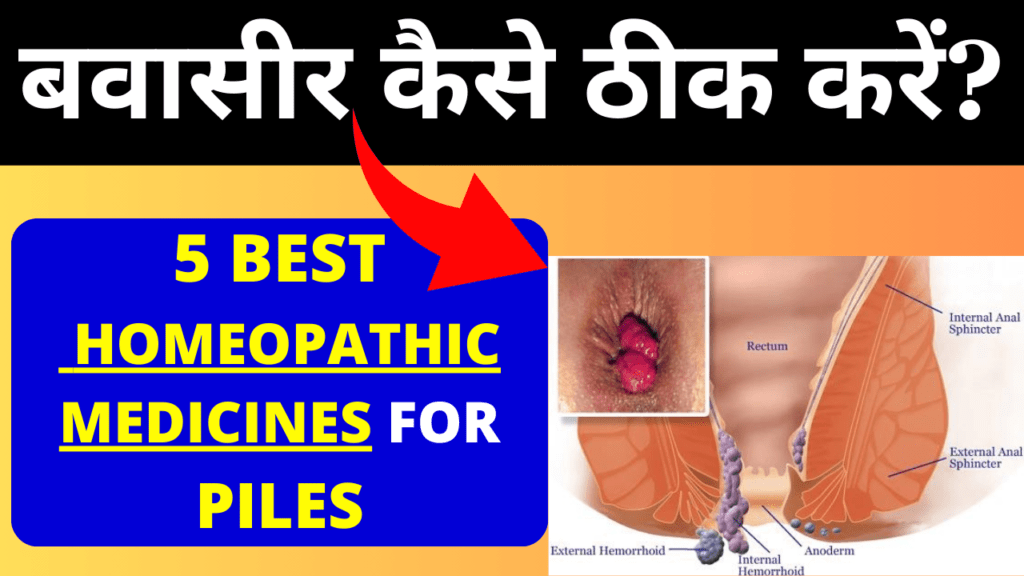
How to remove piles without surgery with homeopathic medicines and also talk that the pph piles surgery is necessary or not.
Hemorrhoids, commonly known as piles, can be a painful and uncomfortable condition. Hemorrhoids develop when the veins in the rectum or anus swell and become inflamed. While there are various treatment options available, including surgery, homeopathy offers a natural and gentle approach to finding relief.
How to remove Piles without Surgery With Homeopathy: A Natural Approach to Relief Piles
Table of Contents
- 1 How to remove Piles without Surgery With Homeopathy: A Natural Approach to Relief Piles
- 2 Understanding Hemorrhoids
- 3 Types of Piles
- 4 Causes of Piles
- 5 The Homeopathic Approach
- 6 Common Homeopathic Remedies for Piles
- 7 Complementary Measures
- 8 PPH Piles Surgery (Procedure for Prolapse and Hemorrhoids) (PPH)
- 9 Piles Surgery Recovery Time
- 10 Conclusion
Understanding Hemorrhoids
Before delving into homeopathic remedies, it’s important to understand what hemorrhoids are. These are swollen blood vessels in the rectum or anus, often causing pain, itching, and bleeding during bowel movements. Hemorrhoids can either be internal, situated inside the rectum, or external, located around the anus.
Types of Piles
Piles, also known as hemorrhoids, are swollen veins located around the rectum or in the anus. They can be classified into two primary types: internal hemorrhoids and external hemorrhoids.
1. Internal Hemorrhoids:
- Location: These occur inside the rectum, so you generally can’t see or feel them.
- Symptoms: They are often painless because there are fewer pain-sensing nerves in the rectum. Nevertheless, they may result in bleeding during bowel movements, along with sensations of fullness or discomfort.
- Causes: Contributing factors include straining during bowel movements, chronic constipation or diarrhea, and pregnancy.
- Treatment: Internal hemorrhoids can often be managed with lifestyle changes, such as dietary adjustments, increasing fiber intake, and using over-the-counter creams or suppositories. In more severe instances, a doctor might suggest procedures such as rubber band ligation or surgery.
2. External Hemorrhoids:
- Location: These occur under the skin around the outside of the anus. They are typically more sensitive and can be felt as lumps or bumps.
- Symptoms: They can be painful, especially when sitting or during bowel movements. They may also cause itching, bleeding, or discomfort.
- Causes: Straining during bowel movements, prolonged sitting, obesity, and childbirth can contribute to their development.
- Treatment: External hemorrhoids can often be managed with lifestyle changes, including dietary modifications and the use of over-the-counter creams. Warm baths or sitz baths can also provide relief. Sometimes, a doctor may have to drain a thrombosed (blood-clotted) external hemorrhoid or suggest surgery as a treatment option.
It’s worth noting that some individuals may have a combination of both internal and external hemorrhoids, which is referred to as mixed hemorrhoids.
It’s essential to remember that if you suspect you have hemorrhoids or are dealing with persistent symptoms, it’s vital to consult a healthcare professional for an accurate diagnosis and personalized treatment recommendations. They can offer tailored guidance and advice that suits your individual situation and needs.
Causes of Piles
Factors contributing to the development of hemorrhoids include:
a- The natural stretching of veins around the anus, which can lead to bulging or swelling under pressure.
b- Exerting excessive strain during bowel movements.
c- Prolonged sitting, especially on the toilet.
d- Chronic bowel issues such as diarrhea or constipation.
e- Obesity, which increases pressure in the lower rectum.
f- Pregnancy, due to increased abdominal pressure.
g- Engaging in anal intercourse.
h- Consuming a diet low in fiber.
i- Regularly lifting heavy objects, which can strain the lower rectum and surrounding area.
The Homeopathic Approach
Homeopathy is a comprehensive medical approach focused on treating the entire individual, rather than solely targeting specific symptoms. It operates on the principle of “like cures like,” utilizing highly diluted substances that mimic symptoms in a healthy person to trigger the body’s innate healing mechanisms. When it comes to treating hemorrhoids, a homeopathic practitioner evaluates the individual’s overall well-being, encompassing physical, mental, and emotional aspects. They will then prescribe a remedy that matches the unique symptoms and constitution of the person.
Common Homeopathic Remedies for Piles
1. Aesculus hippocastanum (Horse Chestnut): This remedy is often used for hemorrhoids that are large, painful, and accompanied by a feeling of dryness and fullness in the rectum. It can also address backache and a sense of heaviness in the lower back.
2. Hamamelis virginiana (Witch Hazel): Witch hazel is known for its astringent properties and is commonly used in homeopathic preparations for hemorrhoids. It can help reduce bleeding, alleviate pain, and relieve itching.
3. Collinsonia Canadensis (Stone Root): This remedy is indicated for individuals with a sensation of constriction in the rectum, as well as a feeling of fullness and heaviness. It can be especially beneficial in situations where constipation plays a role.
4. Sulphur: When hemorrhoids are associated with burning pain, itching, and a sensation of heat, Sulphur may be prescribed. It is often chosen for individuals with a tendency towards chronic constipation.
5. Nux Vomica: This remedy is suitable for individuals who experience hemorrhoids along with a constant urge to pass stool, as well as a feeling of incomplete evacuation. It is often recommended for those with a sedentary lifestyle and a tendency to overindulge in rich or spicy foods.
Complementary Measures
In addition to homeopathic treatment, there are lifestyle modifications that can support the management of piles:
1- Dietary Changes:
Eating more fiber-rich foods such as fruits, vegetables, and whole grains can aid in preventing constipation, which is often a major factor in the development of hemorrhoids.
2- Hydration:
Staying well-hydrated supports smooth bowel movements.
3- Regular Exercise:
Physical activity promotes healthy bowel function.
4- Avoid Straining:
It’s important to avoid excessive straining during bowel movements, as this can exacerbate hemorrhoid symptoms.
5- Sitz Baths:
Warm water baths can provide relief from pain and discomfort.
PPH Piles Surgery (Procedure for Prolapse and Hemorrhoids) (PPH)
The Procedure for Prolapse and Hemorrhoids (PPH), also known as stapled hemorrhoidectomy, involves using a specialized stapler-like device to reposition the hemorrhoids and cut off their blood supply. By depriving them of blood, the hemorrhoids gradually shrink and eventually perish.
PPH is effective for treating both prolapsed hemorrhoids, which have slipped down out of the anus, and those that have not prolapsed.
Unlike traditional hemorrhoidectomy procedures, PPH relocates the hemorrhoids to an area with fewer nerve endings. This results in reduced pain for the patient during recovery. Additionally, recovery time is typically shorter, and there is less bleeding and itching compared to traditional methods. Moreover, PPH generally carries fewer complications, making it a preferred option for many individuals seeking relief from hemorrhoids.
Piles Surgery Recovery Time
The recovery period after undergoing hemorrhoid surgery, or hemorrhoidectomy, typically ranges from four to eight weeks. However, this timeline can vary depending on factors such as the size, severity, and number of hemorrhoids, as well as your overall health and mobility.
During the initial one to two weeks post-surgery, it’s important to take it easy and avoid strenuous activities, including heavy lifting. Resting at home is recommended during this time to allow your body to heal properly.
Around one to two weeks after the surgery, you may gradually resume normal activities, but it’s still advisable to avoid tasks that require significant effort or strain.
It’s normal to experience some level of pain and discomfort for two to four weeks following the procedure. This discomfort will gradually diminish over time. To manage pain effectively, it’s essential to prevent constipation, practice proper wound care, and adhere to any prescribed pain medication regimen.
Typically, full recovery with minimal to no pain is achieved within one to two months following the surgery. However, individual recovery experiences may vary, so it’s important to follow your healthcare provider’s guidance and attend any follow-up appointments as scheduled.
Conclusion
Homeopathy offers a gentle and natural approach to addressing hemorrhoids, considering the individual’s overall health and constitution. However, it’s important to consult with a qualified homeopathic practitioner for personalized treatment. Furthermore, making lifestyle changes can provide additional support in managing this condition. If you are experiencing severe or prolonged symptoms, it is advisable to seek medical attention.




